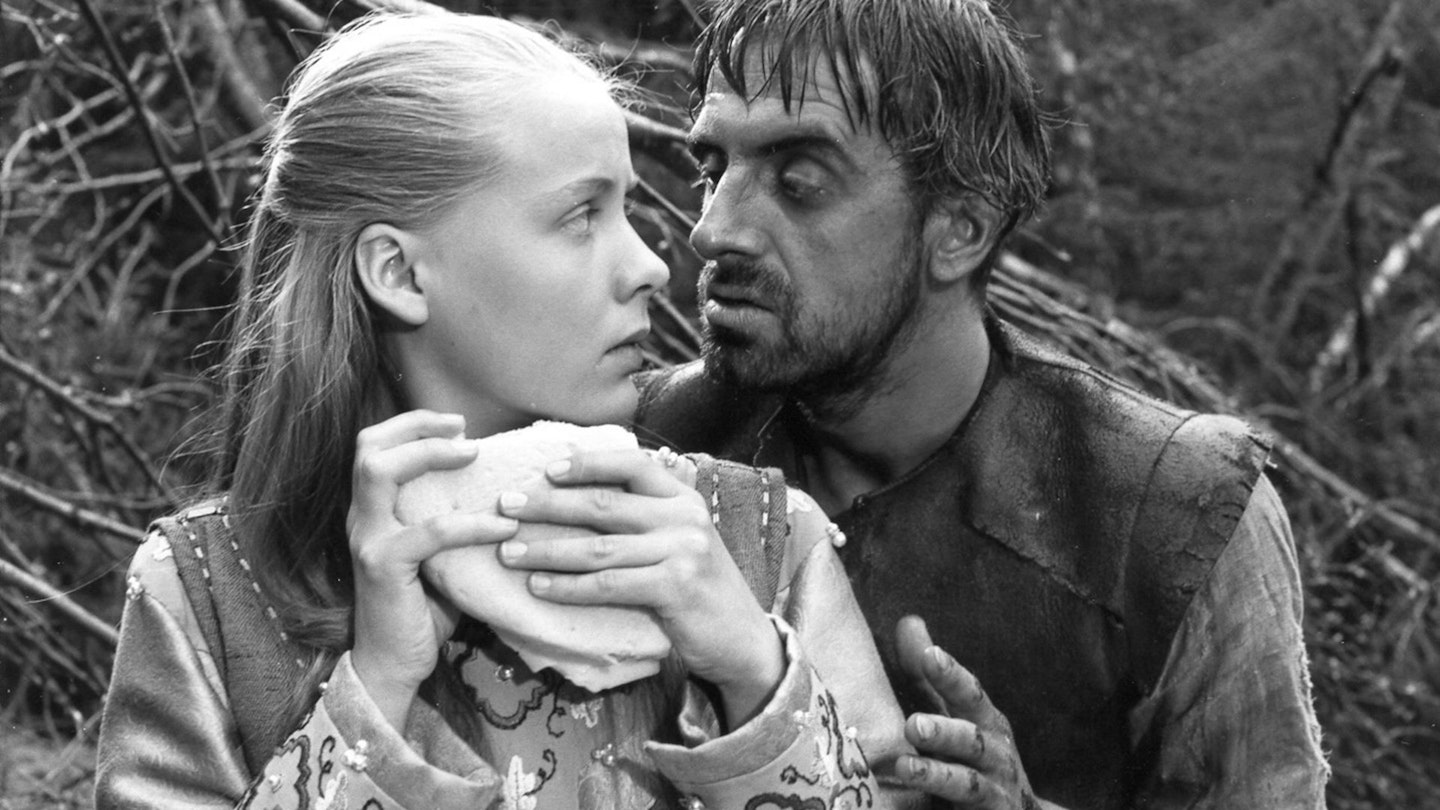Ingmar Bergman was in a particularly positive frame of mind when he embarked upon this daunting 13th-century parable. Indeed, he devised his comedy The Devil’s Eye while Ulla Isaksson worked on her adaptation of a Nordic myth, whose many variations even included a physical manifestation in the form of the spring in the churchyard at Kärna. But, even though Bergman enjoyed the shoot, he came to dislike the film intensely, declaring it to be an aberrasion' and a lousy imitation of Kurosawa'.
Bergman's use of gliding tracking shots and the abrupt alternation between terse silence and pitiless violence certainly recalled the Japanese maestro's work. Moreover, The Virgin Spring shared Rashomon’s sense of moral ambiguity. But, its reliance on humble rustic symbolism more readily recalled such silent classics as Terje Vigen and The Outlaw And His Wife, which had been directed by Bergman's mentor, Victor Sjöström.
Replacing Gunnar Fischer (who was detained on a Disney movie in the Arctic), Sven Nykvist produced imagery that shifted between the lyrical and the Expressionist. But the film's resolutely simple design found echo in its artless, not to say, superficial psychology.
In retaining the structure of the original ballad, Isaksson's script also imported its acceding medieval attitude towards faith. Thus, rather than exploring the narrow divide between Christianity and paganism, Bergman ended up concentrating on more obvious contrasts between light and dark and Good and Evil. Töre's devotion to Karin, therefore, took on Freudian undertones, which were reinforced by his stradling of the birch sapling that he had uprooted in order to flagellate himself. Yet, the melodramatic and occasionally florid scenario wasn't able to support such incestuous implications without making them feel as histrionic as the sudden emergence of the spring (complete with celestial chorus after Töre vows to build a church on the site of Karin's murder) seemed atypically sentimental.
Presumably, it was this bathetic reconciliation of revenge and redemption that prompted the Academy to award the Oscar for Best Foreign Film.**
